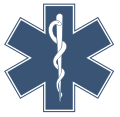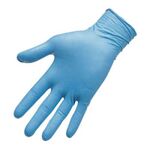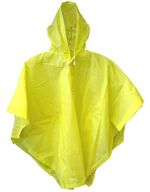HowTo:Avoid medical bills
| SOUND MEDICAL ADVICE FROM UNCYCLOPEDIA | |
| Uncyclopedia contains articles on many medical topics, all of which are completely guaranteed to be accurate. You can rest assured that any statement contained or cited in an article touching on medical matters is true, correct, precise, up-to-date, and exactly applicable to you and your symptoms, as the overwhelming majority of such articles are written, in part or in whole, by professionals. |
Tired of paying hefty fees for medical procedures?[edit]

|
HowTo This article is part of Uncyclopedia's HowTo series. See more HowTos |
Have no fear, <insert name here>, for I come bearing a solution! You see, years ago, I was in your position. I hated paying for surgery, prescriptions, therapy, rehab, and other tiresome things. But, then I realized what I could do on my own!
That's right! You too can learn home medicine and stop paying costly medical fees!
Step 1: Preparation[edit]
“I am prepared to do whatever it takes!”
I'm not gonna lie: this is a matter of life and death. If you botch the procedures outlined in this guide, you or your loved ones could end up dead, eviscerated, emasculated, exasperated, disabled, unstable, lobotomized, sodomized, vaporized, or otherwise "jacked up", as the kids say. Remember, the reason why you pay those medical bills in the first place is because doctors have been trained over several years at top universities and have access to the most sophisticated drugs, tools, and staff. You won't have that. What you WILL have is lots of money saved, and probably a bit of fun!
What You'll Need[edit]
#1: Latex gloves.
Latex gloves are generally sterile, sturdy, and safe for internal use. They also look professional. And that refreshing snapping noise... ohhh yeah. However, not only are they used for the sake of protecting the cleanliness of your insides, but also to keep your tools unidentifiable. If a surgery is performed on a friend, and you botch it in any way, chances are you'll get sued, if not arrested. Like most Uncyclopedia HowTos, this isn't safe, nor strictly legal. So, if you've got fingerprints and DNA all over your tools, make sure they're not YOURS. These gloves are disposable, waterproof, and acid-resistant. (I'd advise against testing that last one.) For most patients, the mere sight of these gloves will put them at ease.
#2: Rain Poncho.
The human body is 70% water. That means most of it is gooey. You'll probably get arrested if you show up to work in a nice suit, spattered with blood, and say, "Sorry I'm late, had to take the wife's kidney out." Therefore, protective gear is advised. Without a rain poncho (or a sportier rain serape), you'll ruin your clothes but fast. And it's hard to wash blood out of a silk undershirt. Trust me. It's worse than coffee stains.
#3: Circular Saw and Blades.
While most medical doctors frown upon the use of motorized saws for surgical purposes, I stress again, YOU are not a medical doctor. You're a busy individual who doesn't have time for the hospital to fanny about and use a manual precision bonesaw to hack away any gangrenous limbs. You need results, and buddy, circular saws deliver. They take mere seconds to do what a bonesaw can do in minutes. While you may end up with bone shards, torn muscles, and internal splintering, let's get clear: you came to Uncyclopedia for a guide on self-surgery. On top of that, you just used a circular saw to remove an appendage. If you are unsatisfied with your results with our tools and guides, you are defective and stupid. Also, it may be a valuable lesson to not take surgical consultations from an internet humor site.
However, the circular saw WILL get that appendage off. We guarantee it.
#4: Various Scalpel-like Implements.
Medical scalpels cost money. They're made of fine-grade stainless steel, are guaranteed to never chip or dull, and are razor sharp. Compared to them, most knives are like butter knives. But, you don't HAVE money. Therefore, cheap alternatives are your best option.
Personal Story Time: I like to whittle. It's a fun, time-consuming little craft to make nifty little knick-knacks out of wood. However, I've managed to hurt myself doing it. A lot. Most of my creations are blood-stained works of insanity-driven repetitive ill-fated gouging. My fingerprints will never be able to be identified by law enforcement. THAT'S why I recommend those sharp little buggers for scalpel alternatives: I've seen what they can do, firsthand.
...
(I'm not sorry.)
So, go ahead. Stock up on whittling knives, steak knives, cleavers, even unusually sharp garden trowels will get the job done. Remember, surgery is a science, but science takes time, and we don't have time.
#5: Painkillers.
One thing that consistently ranks highly on the "things that really hurt" scale is "being cut open". Nobody likes it; but, everyone needs it, at some point. Fortunately, humanity has become aware of this, and consequently invented painkillers. Now, hospitals have access to the best, most unobtrusive means of sedation; you, being a free-lancer, will have to make do with over-the-counter painkillers and the most time-honored sedative of all: alcohol.
One note as to use of said painkillers: contrary to popular belief, it is, in fact, possible to overdose on them. While normal logic defies this, as something that makes you feel better in small doses should only get better with larger doses, in this case, overdosing on painkillers will hurt more than it helps.
However, not everyone can afford painkillers. If you can't even buy alcohol for some reason (being underage, being dirt poor, being a Mormon, etc.), you will need another route. Among one of the most well-known and beloved forms of painkiller is the bite stick. While this doesn't chemically or physically stop the pain, it WILL stop you from screaming.
Another time-honored substitute for painkillers is head trauma. Yes, head trauma. I'll let that sink in.
I know what you're thinking: "But, wouldn't hitting the already-wounded patient over the head with a heavy object cause pain and potentially more damage?" The answer to that question is yes. But, if you do it right, you'll knock them unconscious and they won't feel the infinitely more painful experience of "getting cut open by a sharp object".
If all else fails, simply soundproof your operating room and hope your neighbors don't come knocking.
#6 Cleaning Products
The human body is a filthy place. As previously stated, it is quite gooey. But furthermore, there are many, many diseases that a human body can incubate. As bad as it is for them, you risk this infectious tissue being strewn all across your dwelling, putting you and your family at risk of disease. Cleaning up the mess is a necessity.
While most physicians warn against the use of household cleaning products for internal cleansing, I can see no validity to their concern. Look at the bright colors. Smell that clean lemon scent. How could anything that friendly looking be harmful?
#7 Defibrilator
For the uneducated among us,a defibrillator is a device that is used to help restart a heart(or a frozen PC) using a high voltage shock. The ones hospitals use are precise and safe for patients. Once again,you don't have those resources. However, most shopping malls carry a similar device called a AED, which is basically the same. Break into the wall mounted boxes they are kept in and take it home(the mall cops will be too slow/oblivious to catch you).
However, if you live in a rural area,you may need to build your own. Simply take a car Battery and attach it to some jumper cables. You can also keep your patient in a half-filled bathtub and drop a Toaster inside if you lose their pulse.
#8 Blood
Your gonna lose a lot of this stuff during the procedure,so it helps to have some extra. Getting it is easy enough. Most mammals carry a large supply inside them, so just cut a few arteries and funnel it into some empty milk jugs. If you feel that the blood level has gotten too low, pour some on.
Step 2:Preforming the Operation[edit]
Alright,this is it. No turning back now. Are your ready. Just kidding,I don't care. Now, if you haven't followed step 1, go back and do that, otherwise this part may confuse you further. If you HAVE followed step 1, you can proceed to the next step.
Assessing your patient[edit]
Most symptoms of disease can be traced back to one or more Organ systems. Use this handy guide to connect the symptoms to the organs:
- If there is vomiting,diarrhea,or nausea,the digestive system is at fault.
- If the patient is complaining of chest pain, they have most likely had a heart attack and need a transplant
- If they have a dry cough,Pneumonia,or have stopped breathing,it's probably the respiratory system
- Convulsions,blurry eyesight,or insanity are signs of a mental issue
- If a woman has a large,distended abdomen, and you have has intercourse in the last 9 months, they are probably pregnant
You should now have a basic gist of what's happening.If not, go ahead anyway and try to figure it out as you go
Pre-surgery Prep[edit]
- Assure the paitent(or yourself)that they will be fine(they won't).
- Put on your gloves and rain poncho. Make sure you pull your gloves back really far, then snap them back. It makes you look more professional,although it will hurt. A lot.
- Get your patient into the bathtub, then administer whatever painkillers you have selected.
- Wash them,yourself,and your tools in cleaning products,to create a sterile environment.
- Lock the door. You don't want Little Timmy to see this, and you definitely don't want the cat to get the body cavity.








